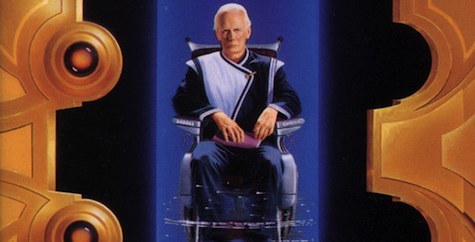When I read classic science fiction stories and see technologies described which have later appeared in real life, I sometimes wonder whether these early writers were predicting the future, or defining it.
In other words, did they see the trends of science and technology and follow them to their logical conclusions, or have modern scientists and inventors been so inspired by the writings of such authors as Asimov, Heinlein, and Jules Verne, that they seek to bring to life the visions so vividly described by these authors? Regardless of which way they inspiration flowed, I find it interesting to compare the technologies described in these works of the past with their modern counterparts.
One of the first classic science fiction books that I remember reading was the Foundation trilogy by Isaac Asimov. So to begin this series, let’s look at a few ideas from the first two parts of Foundation, the Psychohistorians and the Encyclopedists.
Encyclopedia Galactica
The very first new technology we’re presented with in the text are the brief epigrams from the Encyclopedia Galactica. Hari Seldon describes the work as “a giant summary of all knowledge.” It doesn’t take much searching to consider Wikipedia as a modern-day equivalent of this work. Interestingly, at the height of the Encyclopedia Galatica’s influence, we’re told that that around a 150,000 people were involved in its production, whereas Wikipedia states that it has around 270,000 active participants.
Scientists on Trial
The first few chapters of Foundation revolve around Hari Seldon being on trial for his use of psychohistory to predict the coming fall of the empire. Perhaps as Asimov wrote this he was thinking of the trial Galileo suffered when he dared to publish his findings refuting the belief that the earth was the center of the universe. Unfortunately we don’t have to look far to find a more recent case of scientists on trial, but this time for allegedly not warning enough, rather than for warning too much.
Psychohistory
No discussion of the science of the Foundation trilogy would be complete without a look at psychohistory. Gall Dornick defined it as “that branch of mathematics which deals with the reactions of human conglomerates to fixed social and economic stimuli….”
The closest modern equivalent of Asmiov’s psychohistory is macroeconomics, which the Oxford Dictionary of English defines as “the branch of economics concerned with large-scale or general economic factors, such as interest rates and national productivity.”
In fact, Paul Krugman, who won the Nobel Prize in economics in 2008, famously stated that Hari Seldon was his inspiration for studying economics. Sadly, just as politicians in Asimov’s Foundation failed to give heed to psycohistorians, modern day politicians often fail to give heed to economists.
Conclusion and Homework
Another interesting branch of science that is significant in the first part of the book is the symbolic logic to decipher political statements. Your homework is to find the best modern day equivalent of this technique and leave it in the comments.
Dr. Lee Falin is a Bioinformatician at the European Bioinformatics Institute, the host of the Everyday Einstein’s Quick and Dirty Tips podcast and the author of the “Science Fictioned” series, in which he takes scientific research articles and turns them into science fiction and fantasy short stories for middle grade and young adult readers.










